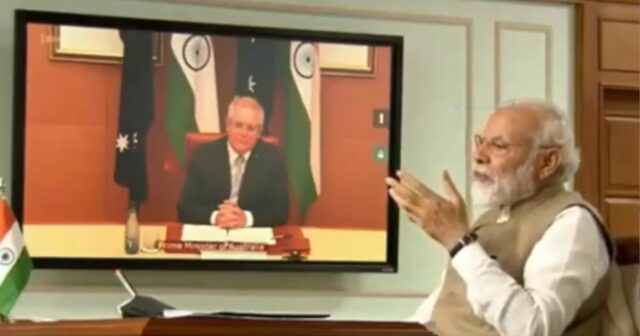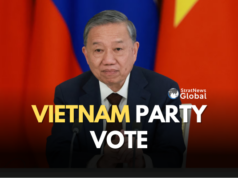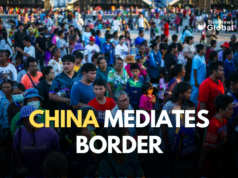NEW DELHI: Widening mistrust between Delhi and Beijing fuelled by an assertive President Xi Jinping has compelled India to enlist the support of others. Former diplomat turned academic Prof. Rory Medcalf of Canberra-based Australian National University told StratNews Global in an interview after the Modi-Morrison virtual summit on June 4 that the elevation of ties to a comprehensive strategic partnership suggests a “really sweeping ambition and recognition that finally India and Australia have truly discovered each other as strategic partners in the Indo-Pacific”.
In his view, the Shared Vision for Maritime Cooperation in the Indo-Pacific can be “useful as a consensus-building document to rally other countries around the Indo-Pacific core” and called for working more closely with Indonesia and some other Southeast Asian countries “in a kind of shared framework”. He underscored the need to “triangulate our relationship with France as it remains the most strategically engaged European nation in the Indian Ocean”. The document can also be used to address Japan and the United States.
Prof. Medcalf’s book titled ‘Contest For the Indo-Pacific: Why China Won’t Map The Future’ coincidentally saw release just before the Modi-Morrison summit. It reflects many of the concerns that lie at the heart of the new India-Australia understanding, notably that the Indo-Pacific is central to global prosperity, but it is also a metaphor for collective action. If diplomacy fails, it could be the theatre for a general war, the first since 1945! Therefore, the need to work together with sustained follow-up by political leaders, diplomats and military commanders.
As for India’s foreign policy approach in the recent years, he says the days of an “omnidirectional diplomacy where a country like India can be equidistant from everyone are probably gone”. And the mistrust between India and China and a muscle-flexing Beijing has meant “neutralising the promise of an India-China partnership at the core of the region”.
It means that India will need to “protect its interests and in some cases take some risks in the international environment,” says Prof. Medcalf, adding, “by and large, the Modi government is doing so quite effectively.” According to Prof. Medcalf, “India has reached a point where it will not be formally aligned to anybody but where it recognises the role that it has in trying to balance Chinese power and maybe enlist others to help it strike that balance as well.”
He believes that India has “reached a turning point in recent years in its strategic trajectory,” adding that “It’s fine and right that India has a sense of autonomy and self-reliance and is building the capabilities that it needs to look after itself”.
He notes that Chinese attempts at hegemony in the region are now being framed by some very important summits between middle powers like Australia, India and Japan. He pointed to the Quad security dialogue and the fact that all its members have strong bilateral or trilateral partnerships.
A similar view on New Delhi’s move towards multipolarity is held by another Australian academic, Dr Ian Hall, of the Griffith University, Brisbane. He told StratNews Global that India is moving away from non-alignment to multi-alignment and, in the last decade or so, India has been trying to “build functional partnerships with a variety of different powers.”
In this context, he noted the strong relationships that New Delhi has forged with major powers, among them the United States and a “trusting and useful partnership with countries like Japan”. Dr Hall who’s authored a book titled ‘Modi And The Reinvention Of Indian Foreign Policy’ believes that India and Australia “need to coordinate our actions and responses to some of the things that China does which have been quite problematic and disruptive. Part of the reason they have been disruptive is because we have not had coordinated responses”.
He also says that dialogues among the Quad Plus (South Korea, Vietnam and New Zealand) on the Covid-19 pandemic are useful as they allow the sharing of assessments and coordination of policy responses.





